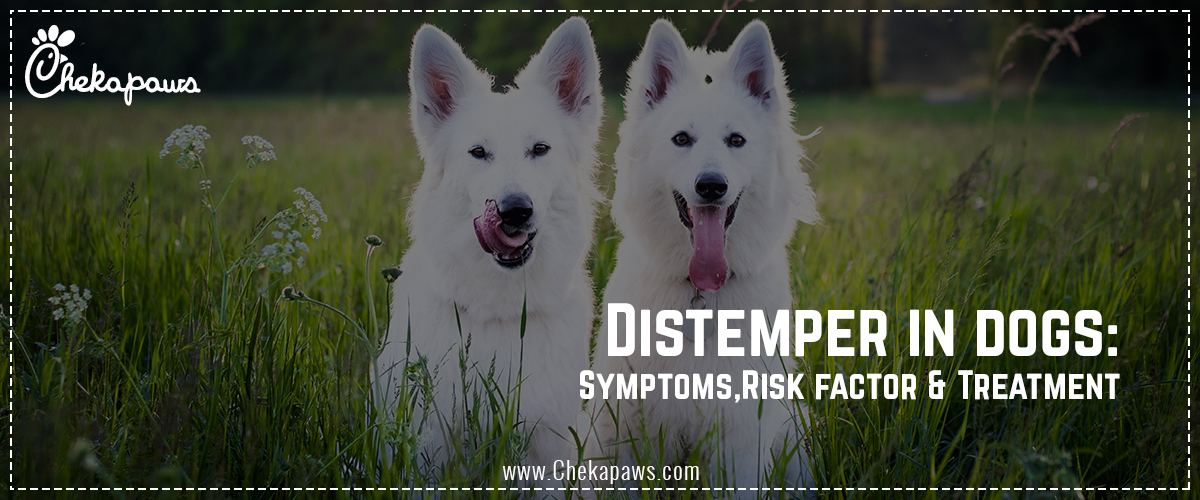Distemper is a highly contagious disease of domestic dogs and other animals. It can cause long lasting seizures and chronic severe pneumonia that is very painful and and difficult to manage, even with medical supportive care. It is seen in dogs around the world, but it can also affect ferrets, racoons, skunks, grey foxes, and many other animals. Canine distemper affects the gastrointestinal, respiratory, skin, immune, and central nervous systems. Some dogs only appear to have a minor cold with eye and nasal discharge, while others begin to have tremors, difficulty swallowing, or partial seizures. At first, you may not notice symptoms of canine distemper, and it can be mistaken for other viruses and infections. Your dog can get a mild or severe case and may have symptoms that only last 10 days.

Symptoms of Canine Distemper
Signs and symptoms canine distemper include:
Nasal discharge
Fever
Eye discharge
Lethargy
Sneezing
Coughing
Difficulty Breathing
Vomiting
Diarrhea
Loss of appetite
Thickening of nose and foot pads
Pneumonia
Pain
How is canine distemper spread?
Puppies and dogs most often get infected through airborne exposure (through sneezing or coughing) to the virus from an infected dog or wild animal. Canine distemper is caused by the paramyxovirus virus. The good news is that the virus does not last long in the environment and can be destroyed by most disinfectants. The bad news is that distemper-infected dogs can shed the virus for up to several months, putting dogs around them at risk. The virus can also be transmitted by shared food and water bowls and equipment. Mother dogs can pass the virus through the placenta to their puppies. Canine distemper can occur year round, but the virus is resistant to cold. The majority of cases in domestic dogs occur in the late fall and winter.
What Dogs Are Most at Risk for Distemper?
While all dogs are at risk for distemper, weaker dogs are at great risk of contracting the disease. The unvaccinated dogs and puppies under four months old are particularly susceptible to canine distemper. If your puppy shows any symptoms of distemper, call your vet immediately. Dogs infected with canine distemper must be separated from other dogs to minimize the risk of further infection. Vaccination is crucial in preventing canine distemper.
Treatment for distemper
There is no cure for canine distemper infection, but treatment involves managing the symptoms, Distemper treatment for dogs consists of supportive care. The survival rate and length of infection depend on the strain of the virus and on the strength of the dog’s immune system. Distemper treatment may include the following:
- Antibiotics
- Medication to reduce vomiting
- Pain Relievers
- Fever reducers
- Hospitalization








♥️♥️♥️♥️